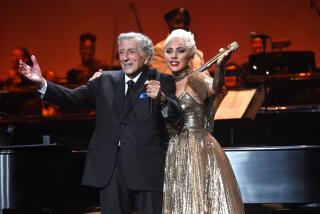Mission Possible: Linking Education With Real Life : Garfield High’s John Bennett Won a Grant to Study History, but It’s the Future of His Students He Cares Passionately About
- Share via
John Bennett, an American government and history teacher , was recently awarded a James Madison Fellowship of up to $24,000 . The program offers veteran teachers an opportunity to obtain master’s degrees. Bennett, 49, has taught for 25 years at Garfield High School. He was interviewed by Laurie K. Schenden.
The biggest difference now from when I started teaching is that we offer excellent college-prep programs that we didn’t offer before. I’ve been the coordinator of the advanced-placement program and the gifted program.
There were a few of us in the ‘70s who decided to begin offering these classes, and I started teaching advanced-placement American history. I didn’t really have a background in American history at all. I probably spent two, three or four hours every night reading for two years so I could learn American history. That’s probably a typical experience of high school teachers who teach advanced-placement classes.
In putting together the program, I’ve seen incredible changes. I’ve seen our students go off to Ivy League colleges and to the UCs, whereas when I began in 1968, hardly anybody was going to college from Garfield High School.
I also teach an 11th-grade class for underachieving gifted students--for kids who are not in our advanced-placement class but who show up as gifted. We assume that the reason they’re not in advanced placement is that somewhere along the line they’ve lost their motivation. So we try to motivate them to go on.
One of the problems in the high schools is that there’s so much isolation. The teachers don’t talk to other teachers about what they’re doing. Right now, we’re studying the Civil War. Instead of just reading the textbook, we’ll read about it and hopefully perform a play on the Andersonville trial. We try to combine literature and history; we do things in conjunction with the English class. When we did the Colonial period, we read “The Crucible.” This was all developed through the same group of teachers over the years. This way we have English and history teachers paired off and they sit down and talk to each other about students and plan their lessons together.
We have also used the gifted-and-talented program as a base to extend academic opportunities to the whole student body. We literally go on a talent search--opening our Advanced Placement classes to anyone with a desire to achieve.
We are very fortunate at Garfield. We have an effective program with a dedicated staff and a large number of motivated students. Still, the average academic skill level at the school is years below the national average. We play a kind of catch-up here, taking kids with motivation but below-average skills and pushing them through several challenging courses. The idea is to push them to a higher level of achievement and to give them a shot at succeeding in college. Over the past few years we have been second citywide in the number of AP tests given, with about 500 a year. Many of our graduates go off to college on some sort of scholarship. This fall, Garfield grads are attending Harvard, Yale, MIT, Berkeley, Caltech and other schools around California and the nation. These kids are getting an excellent high school education that prepares them for college. I’m proud to have been a part of the program, which I think is a significant educational accomplishment.
At the same time, it is disturbing to realize that this program is not a panacea to the problems facing public schools. Our college preparatory program probably affects about 15% to 20% of our graduating seniors. The dropout rate in this part of town remains high. Many students graduate high school without preparation for college or any employment beyond the most menial.
In California, we need to take a different approach. A first step would be to realize that the education of every child is crucially important. It’s scandalous that the public has allowed class size to rise so high and per pupil spending on education to sink so low. A second step would be to rethink the kind of education that children will need to compete in the world today. There has to be a connection between the classroom and the rest of life.
I’m honored to have received this scholarship. It creates a small dilemma for me, however, because I don’t want to give up any of the things I’m doing now, like being Academic Decathlon coach at my school, but I’m excited by the chance to go to grad school. I’m looking for a way to have it all.






